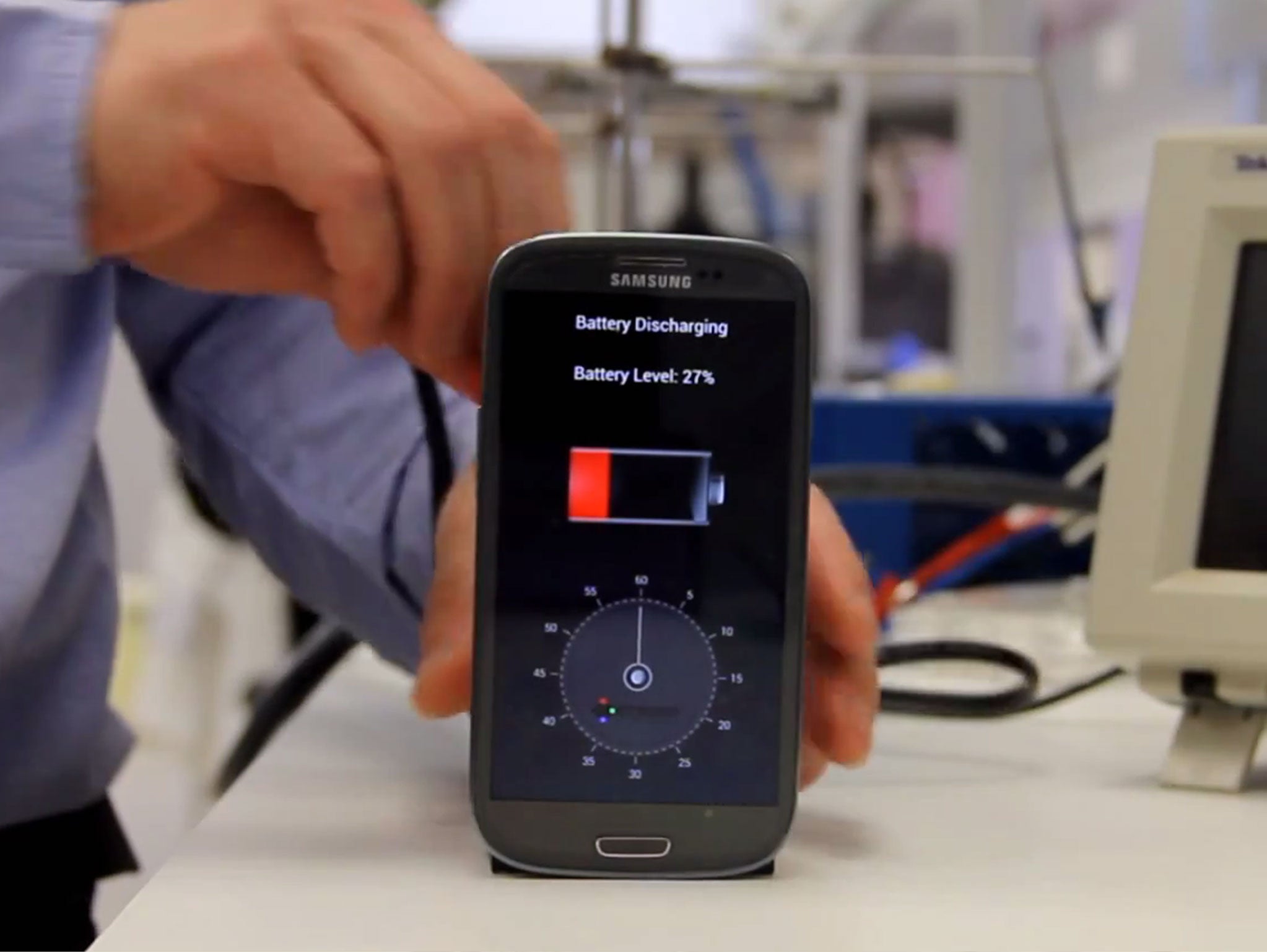A smartphone that charges in 30 seconds: Engineers unveil new 'bio-battery'
Israeli start-up StoreDot uses unique nanotechnology to deliver the charge quickly - though don't expect to see it on shelves for another 3 years

Your support helps us to tell the story
From reproductive rights to climate change to Big Tech, The Independent is on the ground when the story is developing. Whether it's investigating the financials of Elon Musk's pro-Trump PAC or producing our latest documentary, 'The A Word', which shines a light on the American women fighting for reproductive rights, we know how important it is to parse out the facts from the messaging.
At such a critical moment in US history, we need reporters on the ground. Your donation allows us to keep sending journalists to speak to both sides of the story.
The Independent is trusted by Americans across the entire political spectrum. And unlike many other quality news outlets, we choose not to lock Americans out of our reporting and analysis with paywalls. We believe quality journalism should be available to everyone, paid for by those who can afford it.
Your support makes all the difference.Find it difficult to make it to the end of the day with a full battery on your smartphone? Well, the solution might be on the way sooner than you think with engineers in Tel-Aviv showing off a device that can charge a smartphone battery in just 30 seconds.
The prototype battery is currently the size of a cigarette packet and requires a special power source, but its creators - two-year-old Israeli start-up StoreDot - say that they’ll be able fit the technology into a regular smartphone in a year’s time and plan on producing a commercial device in three years.
The key to the battery’s incredibly quick charging time is the use of self-assembling nano-crystals made from peptides – a type of amino acid thats used in various biological processes in the body.
These tiny, conductive structures (spheres just 2.1 nanometers across) have unique properties that make them useful to electronic engineers. They’ve previously been used to develop memory chips that can write data three times faster than traditional devices.
StoreDot, who have raised $6.25 million in funding to date, say that this sort of “bio-organic” technology could disrupt a number of industries, but that so far the electronics world “is not ready”.
“This is a new type of material, with new physics, new chemistry, that is actually coming from nature,” founder Dr Doron Myersdorf told TechCrunch.
“Everything we do we try to imitate and to follow and to let nature take its course. To create these nano-crystals we don’t need a huge fabrication facility. We mix some basic elements — like hydrogen, nitrogen, helium.”
Dr Myersdorf said that the new batteries are likely to be 30 to 40 per cent more expensive to manufacture than traditional ones and that any products that integrate them are likely to be twice as expensive as devices currently on the market.
Join our commenting forum
Join thought-provoking conversations, follow other Independent readers and see their replies
Comments